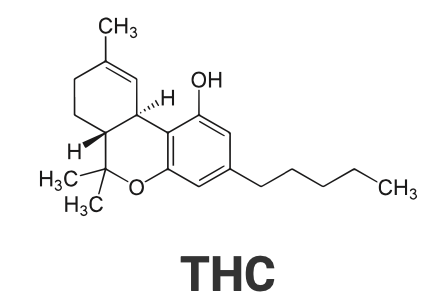Cannabis may be one of the most misunderstood plants on the planet.
For years, cannabis and the compounds derived from it have been misconceived as dangerous drugs. As a result, anti-drug activists have put out all sorts of misinformation surrounding the plant.
Today, mainstream society has begun seeing the medicinal value of cannabis. Over half the states in the USA have some kind of legal medical marijuana program, hemp is federally legal, and CBD can be found on the shelves of your local grocery store. Despite this progress, many of the myths about cannabis persist. Today we’ll take a look at some of the most common cannabis misconceptions and find out if there’s any truth behind them.
MYTH: Cannabis Is A Gateway Drug
The cannabis gateway drug myth has been a staple of anti-drug campaigns like D.A.R.E for decades. The basic idea being that marijuana use will lead to the consumption of more dangerous drugs like cocaine or heroin. Since the ’80s, some people have suggested that cannabis can change the brain, producing a desire to consume other illicit substances; however, there hasn’t been much in the way of scientific evidence to support these claims.
In fact, according to the CDC, the vast majority of cannabis users do not go on to use other drugs.

MYTH: The Only Use For Cannabis Is Getting High

Cannabis is a surprisingly versatile crop. Hemp, which is cannabis that contains less than 0.3% of the intoxicating compound THC, has been cultivated for thousands of years for reasons completely unrelated to the psychedelic effects of marijuana.
Industrial hemp fibers historically have been used to make paper, sails, rope, and clothing. Today, these fibers can be used to make greener alternative energy. Other compounds found in the cannabis plant, like CBD, don’t come with the intoxicating effects of THC but are still used medicinally and therapeutically to treat a myriad of different ailments ranging from insomnia to incessant seizures.
Even hemp seeds, or hemp hearts, as they’re sometimes called, are cultivated for culinary purposes. These little seeds have a tasty nutty flavor and are teeming with nutrients and amino acids. You may also find hemp seed oil in the beauty aisle since these same fatty acids can play a role in promoting healthy skin.
MYTH: The Cannabis Today Is Stronger Than It Used To Be

If some of your older friends lived through the ‘60s and ‘70s, then you’ve likely heard them mention that cannabis today is stronger than when they were growing up.
This myth has some truth to it. Thanks to the efforts of breeders, cultivators, and cannabis scientists, there are strains of marijuana available with incredibly high THC contents. Looking at the winners of the infamous High Times Cannabis Cup, an annual award for the year’s greatest ganja, there have been winners with THC percentages upwards of 30%. It’s no myth that these strains are more powerful than anything passed around during Woodstock.
However, modern breeding techniques don’t just create potent cannabis; they create a wider variety of options—especially in cities where recreational marijuana is legal. For example, the CBD-rich hemp strains E1011 Labs uses in our stelo™ contain barely any THC—significantly less than you’d find in a ‘60s era dime bag. Walk into any legal dispensary, and you can find cannabis products running the whole gamut of THC percentages, from 0% CBD strains to concentrates boasting percentages above 80%.
So while there are more potent forms of cannabis available today than there used to be, it’s not entirely accurate to say that cannabis, on the whole, has gotten stronger.
MYTH: Cannabis Is Not Addictive
Many vocal proponents of cannabis have made the case that cannabinoids are not addictive, but is that really true?
While it’s true that cannabis doesn’t produce life-threatening withdrawal effects like heroin, or even legal substances like alcohol and prescription opiates, according to Dr. Melanie Bone, “there is definitely a risk of dependence, as well as difficulty with managing withdrawal.”
Plenty of people have trouble moderating their cannabis consumption. Users who suffer from Cannabis Use Disorder may find they have trouble quitting, even though they want to. Withdrawal effects include irritability, insomnia, changes in appetite, depression, and anxiety.



